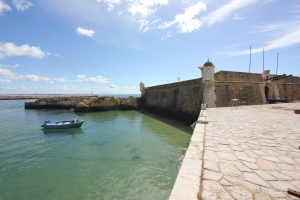ADVICE
Making the decision to buy a home in Portugal is very exciting but, regardless of whether this is to be a holiday home or a full-time relocation, it is important you approach every stage of the process with caution.

Real estate sales is a government licensed profession in Portugal, so you should make sure the agents have been trained and certified by the Instituto da Construção e do Imobiliario (INCI), and display their licence (AMI) number.
The notary in Portugal became a privatised profession quite recently, and they represent the state, rather than either party. They make sure good title is attained, all the required paperwork is filed and taxes are paid.

The role of a notary should not be confused with that of an independent solicitor. There are two types of legal representation in Portugal; a solicitador and an advogado. The former, while similar in name to a UK solicitor, is more akin to a conveyancing specialist. They do not need a degree, but have to be registered with the Camara dos Solicitadores.
Cardine Martins is a British-born bilingual solicitador living and practising in Burgau, with an expansive knowledge of the Western Algarve and the property market. You can read more about Cardine here www.cardinemartinssolicitadora.com/415125365
Property Reservation Form
The first stage to purchasing a property in Portugal is reserving the preferred property. A reservation form is not used in all Portuguese property transactions, but it gives both parties a degree of security when the next stage, the promissory contract of sale and purchase, cannot be entered into immediately.
Normally, the reservation stage involves the property being taken off the market, and sets a time limit within which the promissory contract must be signed. The promissory contract is when you would normally pay the deposit. This contains all the conditions of sale, which could include completion of any building work and the connection of utilities.
Your independent legal representative will earn their fees by confirming the following documentation:
- Certidão de Teor: this shows if there are outstanding mortgages on the property, and if it is registered in the owner’s name
- Caderneta Predial: this sets out the size of the property, its location and boundaries. Any unregistered buildings or extensions will show up when comparing these documents to the actual property
- IMI statement: this confirms all the rates bills are up to date
- IMT statement: that the real estate transfer tax is paid over to the tax authorities on the sale
- Fiche tecnica de habitação: houses built or altered since 31 December 2003 will have documents which confirm the builder, materials used and supplier
- Identification and tax number documents of both parties: if you are new to Portugal and have not yet opened a bank account, your lawyer will help you obtain a fiscal number at the tax office
Once all the documents are present and the conditions satisfied, the public deed of sale and purchase can proceed at the notary office. This is the formal record of the purchase. The transmission of ownership is then registered at the local property registrar by providing them with a certified copy of the deed.

